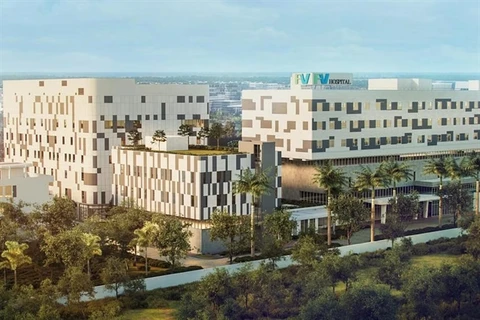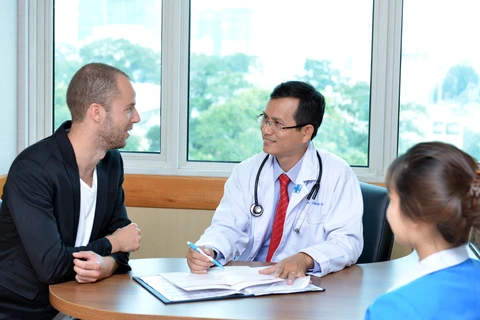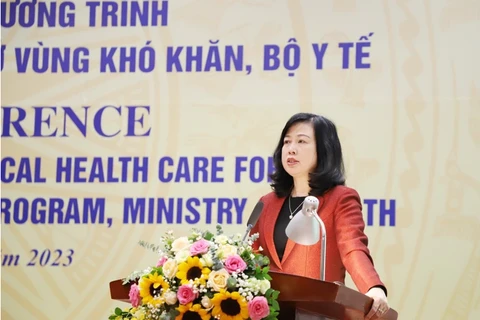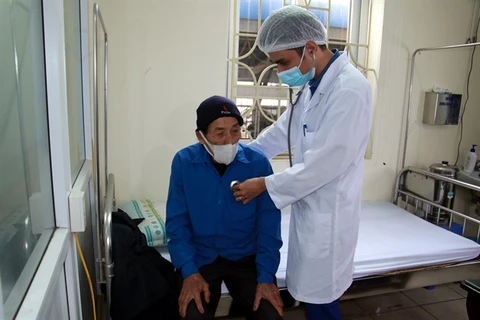HCM City (VNA) – Vietnam’s FV Hospital has officially become a member of Singapore-listed Thomson Medical Group Limited (TMG), manifesting Vietnam's potential to develop high-quality medical services, thus attracting foreign investors.
Speaking at a ceremony to announce the acquisition, Tran Van Thuan, Deputy Minister of Health said it is expected that after becoming a member of TMG, the hospital will receive stronger investment, better meeting people’s demand for medical examination and treatment in the future and attract a large number of foreign tourists to Vietnam for health care.
It will increase opportunities to connect between domestic medical organisations and facilities with international investors, he said.
The official urged FV Hospital to make further efforts to attract foreign patients, contributing to gradually turning Vietnam into a wellness tourism destination in the coming years.
Kho Ngee Seng Roy, Consul General of Singapore in Ho Chi Minh City, said Singapore has always been among leading countries that invest in Vietnam.
He said that the acquisition of FV Hospital reflects Vietnam’s increasingly important role in the region as well as its ability to attract foreign direct investment and close trade relations between the two countries.
The cross-border cooperation and knowledge sharing toward the common goal of improving the healthcare system that both Thomson Medical Group and FV Hospital are pursuing are examples of the heights that the two countries can obtain through collaboration, he continued.
FV Hospital was founded by Dr Jean-Marcel Guillon in 2003 with a group of French physicians. It receives and treats nearly 250,000 patients each year, of whom 25% are foreigners living and working in Vietnam./.
Speaking at a ceremony to announce the acquisition, Tran Van Thuan, Deputy Minister of Health said it is expected that after becoming a member of TMG, the hospital will receive stronger investment, better meeting people’s demand for medical examination and treatment in the future and attract a large number of foreign tourists to Vietnam for health care.
It will increase opportunities to connect between domestic medical organisations and facilities with international investors, he said.
The official urged FV Hospital to make further efforts to attract foreign patients, contributing to gradually turning Vietnam into a wellness tourism destination in the coming years.
Kho Ngee Seng Roy, Consul General of Singapore in Ho Chi Minh City, said Singapore has always been among leading countries that invest in Vietnam.
He said that the acquisition of FV Hospital reflects Vietnam’s increasingly important role in the region as well as its ability to attract foreign direct investment and close trade relations between the two countries.
The cross-border cooperation and knowledge sharing toward the common goal of improving the healthcare system that both Thomson Medical Group and FV Hospital are pursuing are examples of the heights that the two countries can obtain through collaboration, he continued.
FV Hospital was founded by Dr Jean-Marcel Guillon in 2003 with a group of French physicians. It receives and treats nearly 250,000 patients each year, of whom 25% are foreigners living and working in Vietnam./.
VNA
























